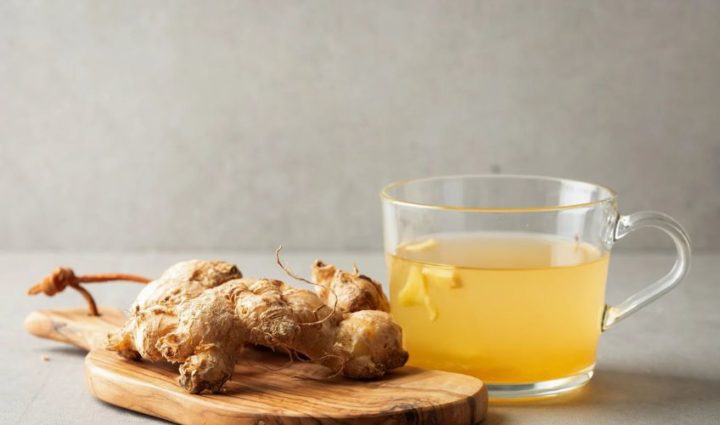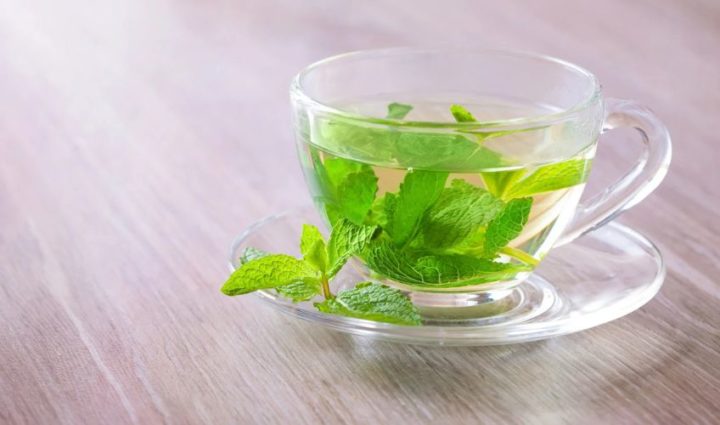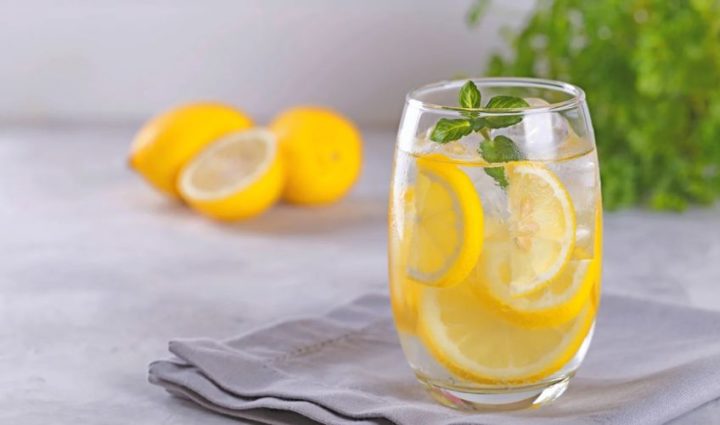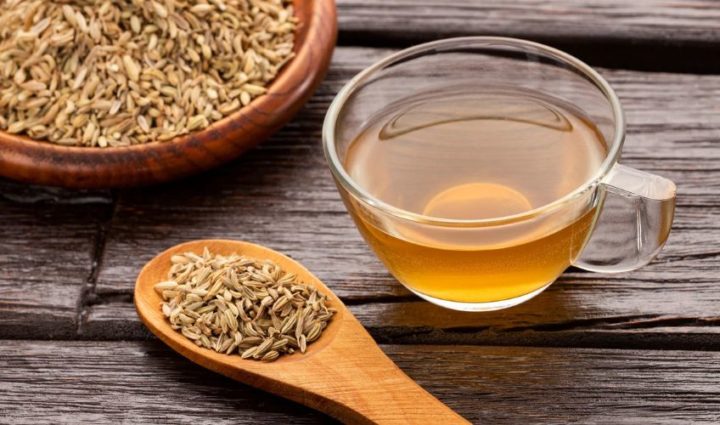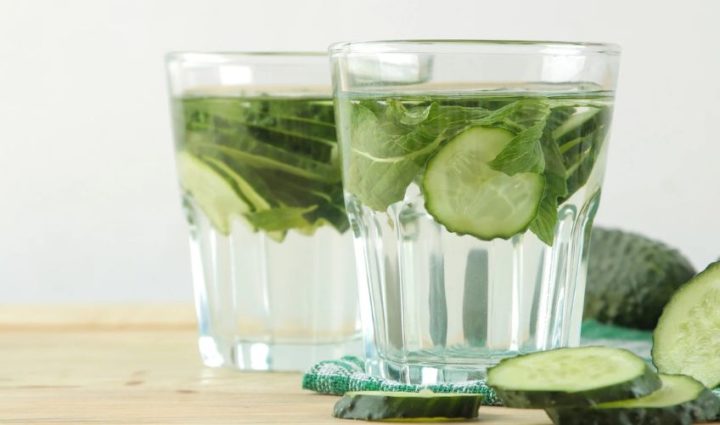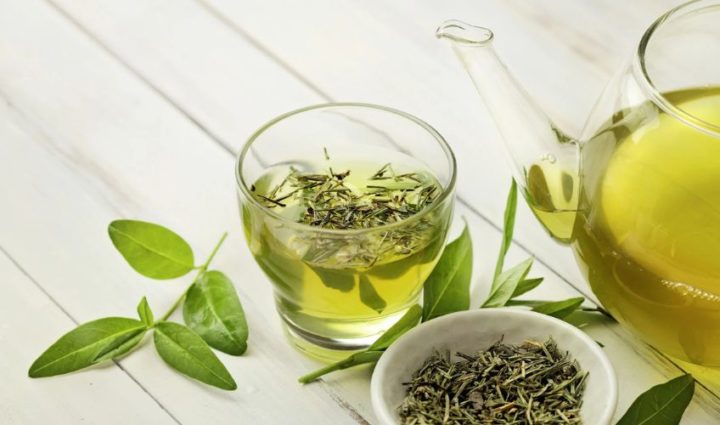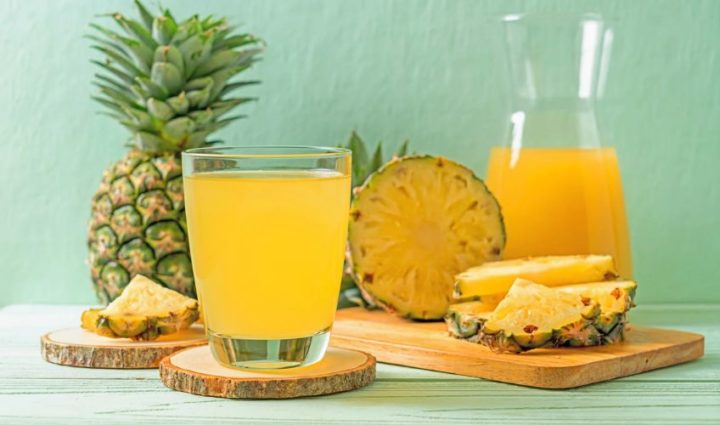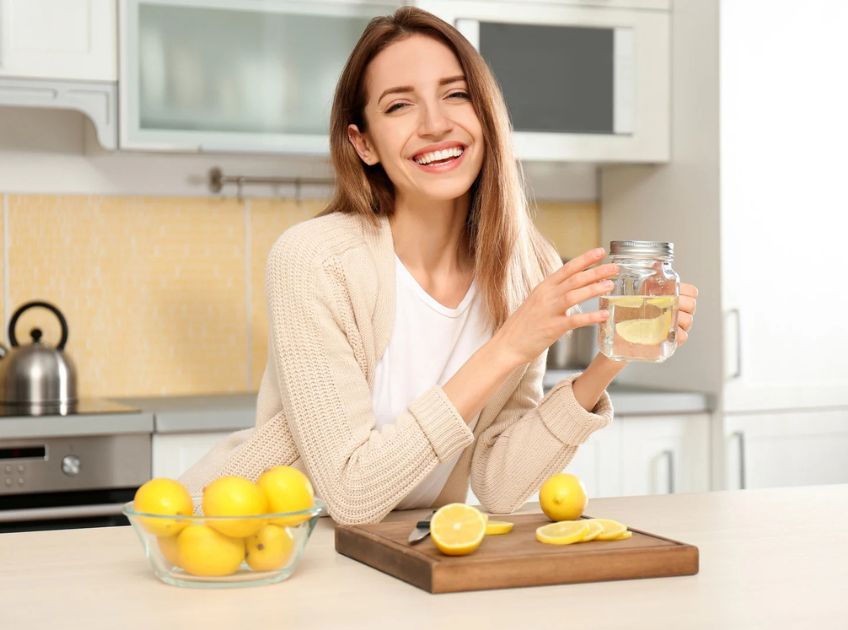
Important: This article is for informational purposes only. Please read our full disclaimer for more details.
We’ve all had those days—when your favorite jeans suddenly feel snug or your stomach feels uncomfortably full for no reason. Bloating happens to the best of us, and often, what you drink can either make it better or worse. The good news? A few simple beverage swaps can calm your belly and help you feel lighter fast.
Let’s explore the best drinks that help reduce bloating, which ones to skip, and other easy ways to keep your digestion happy—all backed by a bit of science and plenty of real-world experience.
Bloat-Busting Beverages: 7 Drinks That Actually Help
1. Ginger Tea — The Classic Tummy Soother
Ginger has long been praised for its ability to calm the stomach. Rich in compounds like gingerol and shogaol, it promotes smoother digestion and prevents gas buildup. Studies have shown that ginger enhances gastric emptying, meaning food moves through your system more efficiently—leaving less room for bloat (1). Sip a cup of warm ginger tea after meals to feel lighter and more settled.
2. Peppermint Tea — Cooling Relief for Digestion
Peppermint is nature’s answer to an upset stomach. It contains menthol, which relaxes the muscles in your digestive tract, helping relieve bloating, cramps, and discomfort. Research in Phytotherapy Research found peppermint oil highly effective in easing symptoms of IBS (irritable bowel syndrome) (2). A soothing cup after dinner can make a world of difference.
3. Warm Lemon Water — A Gentle Morning Reset
There’s a reason so many people start their day with lemon water. The citric acid in lemons supports bile production, which helps your body digest fats more effectively. Lemon water also encourages hydration and helps reduce sodium-related water retention—one of the biggest causes of bloating. Drink it first thing in the morning for a natural detox effect.
4. Fennel Seed Water — The Ancient Digestive Healer
Used in traditional medicine for centuries, fennel seeds are well-known for their anti-bloating properties. Steep a teaspoon of fennel seeds in hot water for 10 minutes, strain, and sip slowly. Studies in the Journal of Food Biochemistry show fennel helps relax gut muscles, reduce trapped gas, and ease bloating. It’s mild, soothing, and caffeine-free—perfect for evening relaxation (3).
5. Cucumber and Mint Infused Water — Hydration That Heals
Dehydration is one of the biggest hidden causes of bloating. Adding cucumber and mint to your water can boost hydration while also offering anti-inflammatory benefits. Cucumber is rich in antioxidants and has mild diuretic properties, helping flush out excess sodium and water. Mint, on the other hand, helps calm your digestive system (4). Keep a jug in your fridge for all-day sipping.
6. Green Tea — The Gut-Friendly Detox Drink
Green tea is a natural metabolism booster and a gentle detoxifier. Its catechins (antioxidants) promote better digestion and help reduce water retention. A study published in The Journal of Nutrition found that green tea can improve gut microbiota balance, supporting smoother digestion and less bloating over time (5). Just be mindful of caffeine sensitivity—opt for decaf if needed.
7. Pineapple Juice (Fresh Only!) — Sweet Relief for Digestion
Fresh pineapple juice isn’t just delicious—it’s full of bromelain, an enzyme that helps your body break down protein and ease inflammation in the gut. Bromelain has been shown to reduce digestive discomfort and support better nutrient absorption (6). For best results, go for fresh, unsweetened pineapple juice (store-bought versions often have added sugar, which can worsen bloating).
Steer Clear: Drinks That Can Make Bloating Worse
Some drinks sneakily cause bloating without you realizing it. Here’s what to limit:
- Soda and fizzy drinks: The bubbles can trap gas in your digestive system.
- Alcohol: It disrupts your gut bacteria and causes dehydration.
- Dairy-heavy drinks: If you’re lactose intolerant (even mildly), these can trigger gas and bloating.
Sugar-free sodas and drinks with artificial sweeteners: Ingredients like sorbitol and xylitol can ferment in your gut, leading to puffiness and discomfort.
Beyond the Drink: Simple Daily Habits to Prevent Bloating
Even the best drinks can only do so much if your eating habits work against you. Try these easy changes:
- Eat slowly and chew well—rushing meals makes you swallow air.
- Cut back on processed foods high in sodium.
- Add more fiber from natural sources like fruits and veggies.
- Move your body daily—even a short walk helps your digestion.
Frequently Asked Questions (FAQ’S)
1. How soon will I feel relief after drinking these?
A. Many people notice results within an hour—especially after sipping ginger or peppermint tea. But consistency is key for lasting comfort.
2. Can I drink these every day?
A. Absolutely! Most of these drinks are gentle enough for daily use. Just watch your lemon water if you have sensitive teeth or acid reflux.
3. Are these safe for everyone?
A. Generally, yes. But if you have specific medical conditions—like gallstones or GERD—it’s best to check with your doctor before trying strong herbal teas regularly.
Final Sip
Bloating doesn’t have to ruin your day. By choosing gut-friendly drinks like ginger tea, fennel water, or cucumber-mint infusions, you can soothe your stomach naturally and feel more comfortable in your own skin. Pair these with mindful eating and proper hydration, and you’ll be well on your way to a flatter, happier belly.
